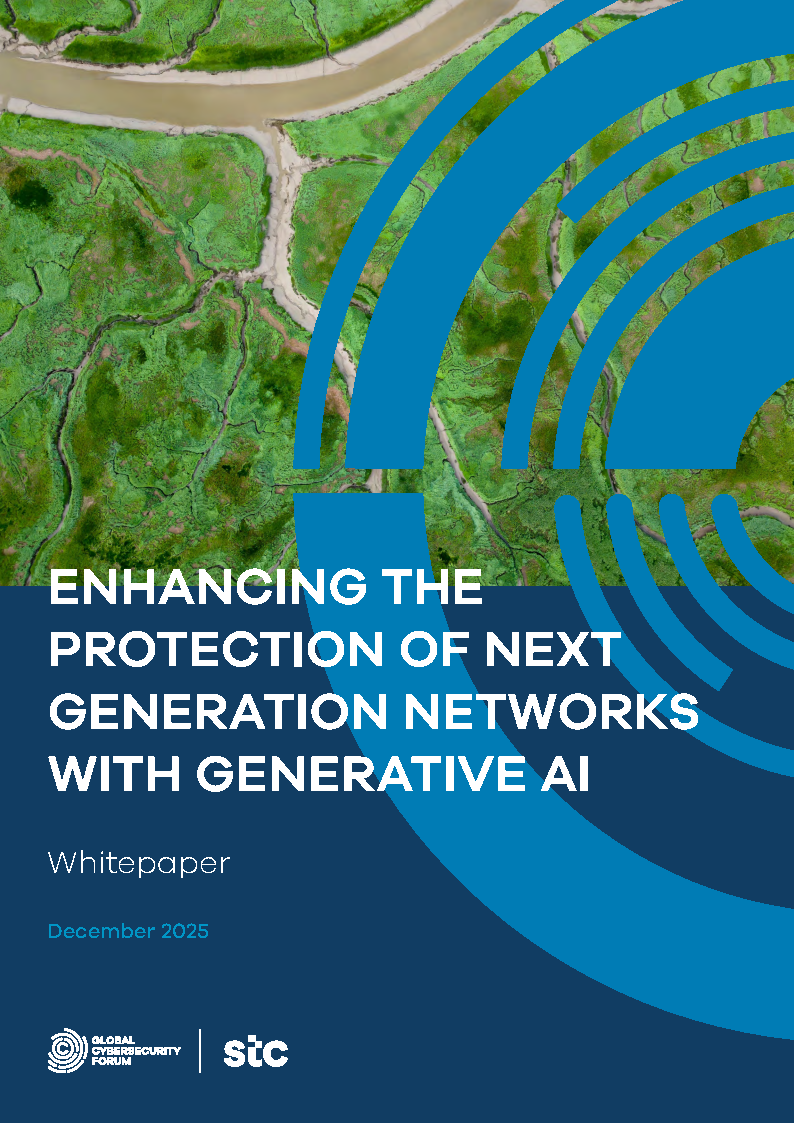- Home/
- Press & Media/
- Transforming Cybersecurity Challenges into Opportunitie.../
Transforming Cybersecurity Challenges into Opportunities: Insights from Meet GCF New York
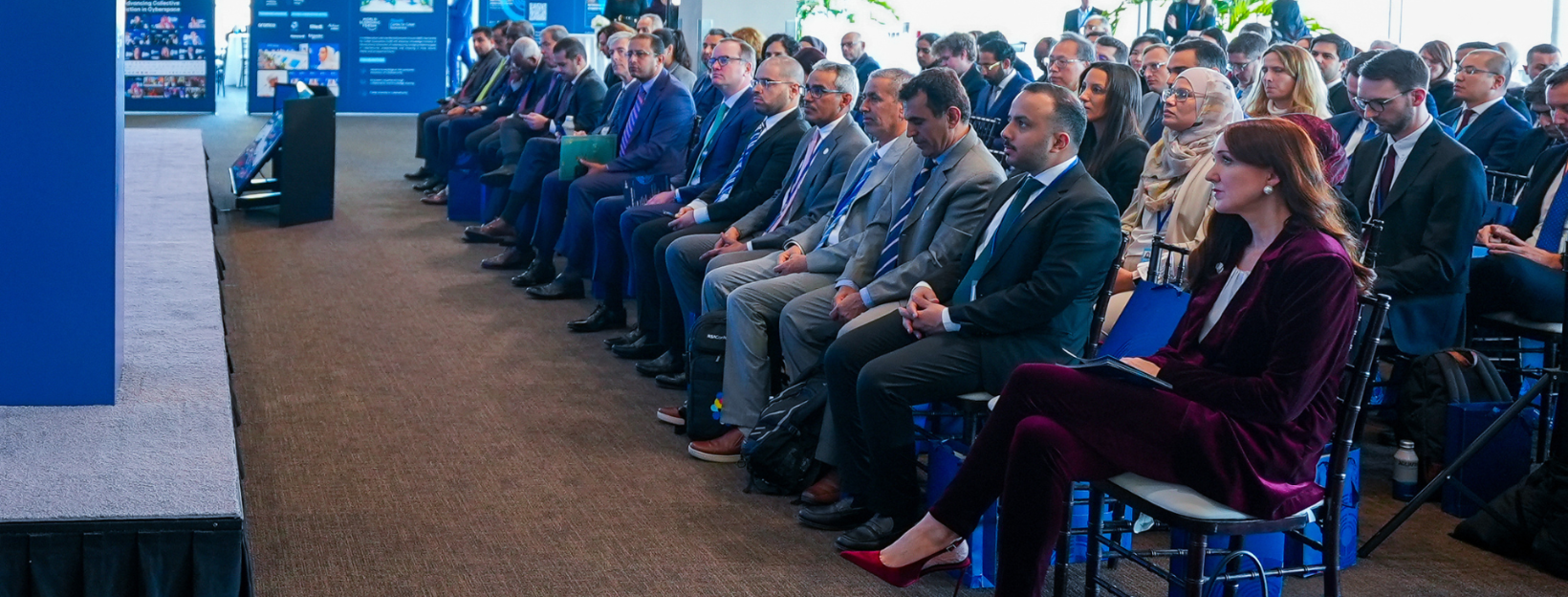
As nations seek greater security and prosperity for their people, a safer, more resilient Cyberspace is essential to achieving these goals. How can a shared commitment to collaboration and collective action transform cybersecurity challenges into opportunities for development and growth?
This was the question at the center of Meet GCF New York, the latest in GCF’s global series of events, which convened diplomats and high-level officials at the United Nations (UN) Headquarters, alongside the 10th Substantive Session of the UN Open-ended Working Group (OEWG) on Information and Communication Technologies.
Discussions highlighted the borderless nature of Cyberspace, underscoring the critical need for nations to resist defaulting to geostrategic competition at a time when scaling up multistakeholder efforts to strengthen global cybersecurity is imperative.
The need for a cyber social contract
At Meet GCF New York, the first United States National Cyber Director, Chris Inglis, took to the stage for a fireside chat on the theme: ‘Collective Action in Cyberspace: Transforming Challenges into Opportunities’. Inglis is the co-author of ‘The Cyber Social Contract’, a Foreign Affairs article that posits that Cyberspace requires a shared commitment to one another in order to share its benefits equitably and ensure its security.
“We thought there was nothing more profound than a social contract because we understood that Cyberspace was one and the same as human space,” said Inglis, emphasizing humans’ “existential dependence” on cyber infrastructure.
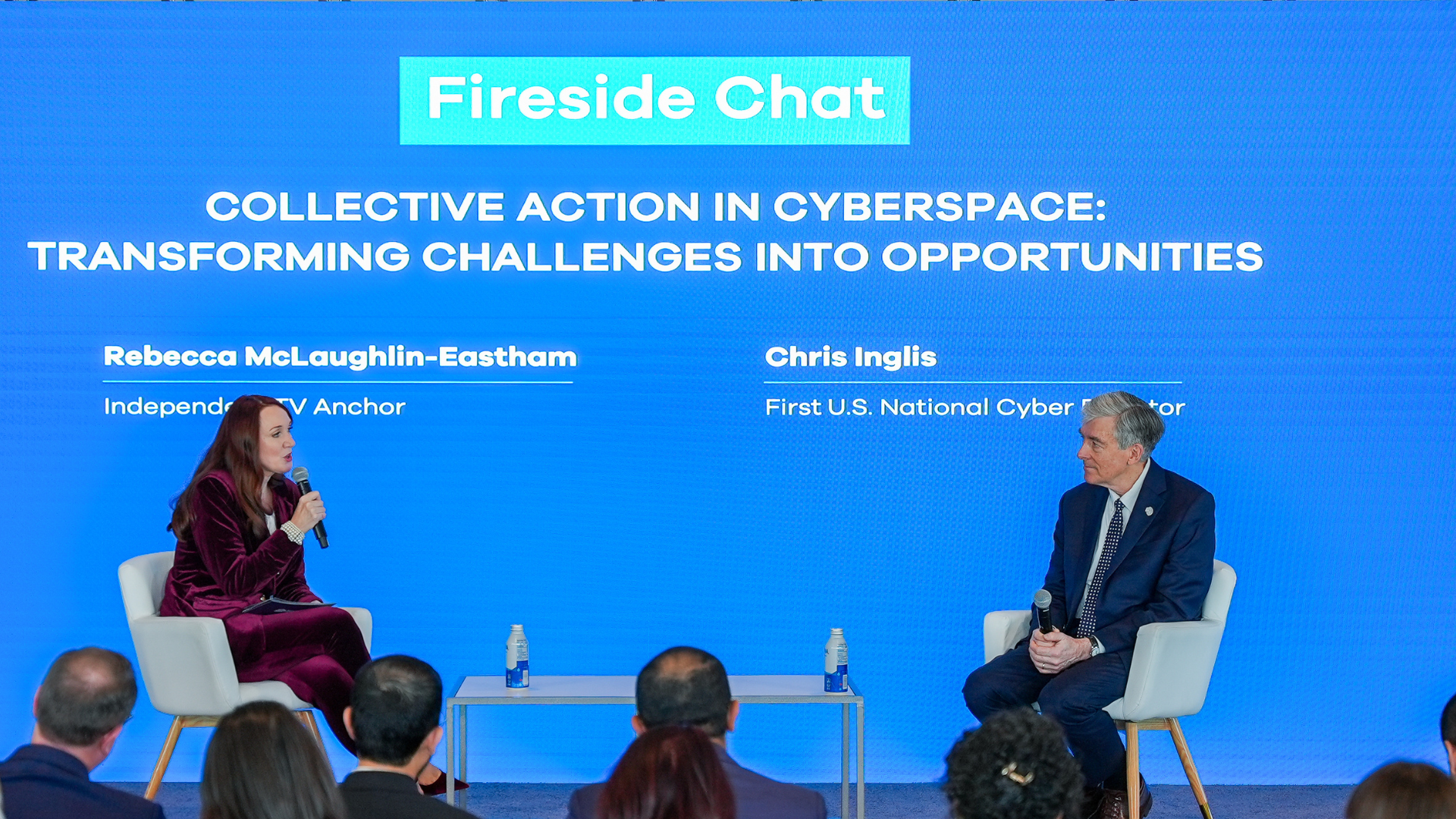
Removing the roadblocks
The global cybersecurity talent gap poses a major challenge to every nation's ability to combat rising cyber threats. GCF’s ‘2024 Cybersecurity Workforce Report’ reveals a shortage of 2.8 million cybersecurity professionals worldwide – talent that Duke Sanford Professor David Hoffman points to as critical to a resilient Cyberspace, calling for greater investment in people to bridge the gap.
Speaking at Meet GCF New York, ahead of the announcement of a joint global research project between Duke University and GCF to deepen understanding of the barriers to women entering the cybersecurity sector, Professor Hoffman said: “Now that cybersecurity is critical across all industrial sectors, including some of the areas that society is most dependent upon, like energy and telecommunications, to have enough cybersecurity professionals providing robust prevention against attacks and a level of resilience that we need for protecting citizens, it's critical that we invest in people.”
Uplifting cyber literacy across society is also vital. At Meet GCF New York, Chris Inglis emphasized that organizations need to increase cybersecurity knowledge, from the boardroom to the legal office, to ensure they are fully informed when making critical choices that move markets or affect public policy.
However, current efforts to address such gaps lack concrete, coordinated action between nations, as well as public and private sectors. “The real problem is not that we don't have solutions, [it] is that we've not applied those in a coherent, concurrent fashion,” remarked Chris Inglis. “The real problem is that we haven't actually joined forces to effect a social contract with one another.”
Empowering women to cyber leadership
Expanding the breadth of cyber talent represents a decisive step toward a more resilient Cyberspace. ‘Empowering Women to Leadership in Cyber’, the United States Telecommunications Training Institute’s (USTTI) new program with GCF, was also announced during Meet GCF New York. The program will deliver in-person training to increase women’s participation in the cybersecurity sector and equip them for leadership. In collaboration with diverse partners, sessions will be delivered in the U.S. and Saudi Arabia to foster an international community of professionals who inspire more women to enter the sector.
At Meet GCF New York, Jim O’Connor, Chairman and CEO of USTTI, highlighted the need for coordinated global action to address the talent gap: “The private sector, the international community, and governments around the world can come together to form the multistakeholder response and provide opportunities for women who are looking to advance in the cybersecurity workforce.”
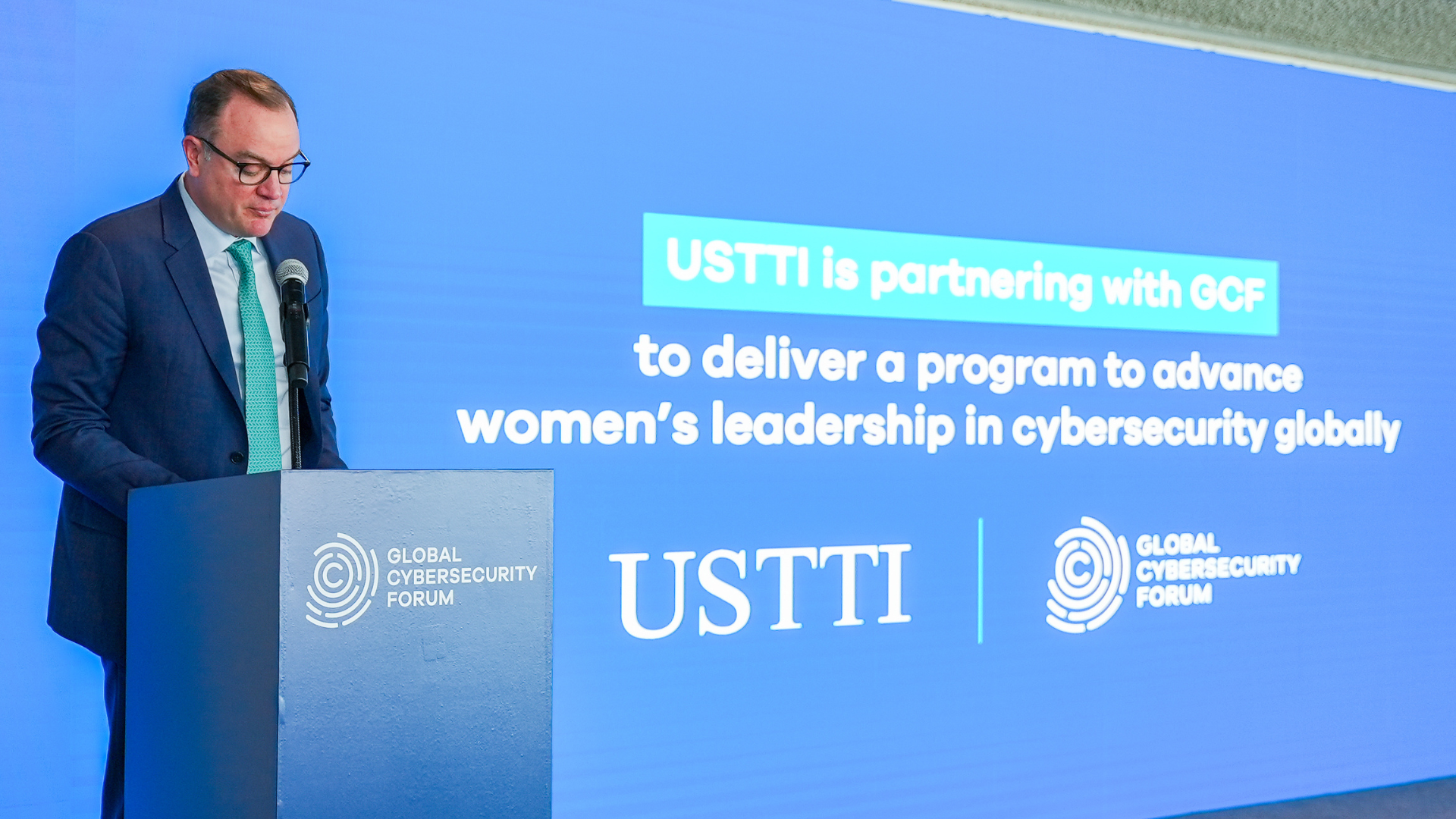
These efforts support the objectives of the Women Empowerment in Cybersecurity (WEC) initiative, instated by H.R.H. Prince Mohammed bin Salman, Crown Prince and Prime Minister of Saudi Arabia, and overseen by GCF, which aims to strengthen global cyber resilience by empowering more women to take up these essential jobs.
Toward greater cooperation
On the topic of aligning global efforts to address cybersecurity challenges, Inglis is optimistic, and emphasized that by making a conscious effort to collaborate, think critically, and make a shared commitment to resilience, the global community can advance a secure Cyberspace that benefits many generations to come.
This need for a unified response to global cybersecurity challenges will be at the center of the discussions at this year’s GCF Annual Meeting on 1-2 October in Riyadh. Under the theme, ‘Scaling Cohesive Advancement in Cyberspace’, the 2025 edition aims to elevate the scope, capacity, and impact of the advancements accomplished by the GCF community to date, toward a more secure, resilient Cyberspace for all.

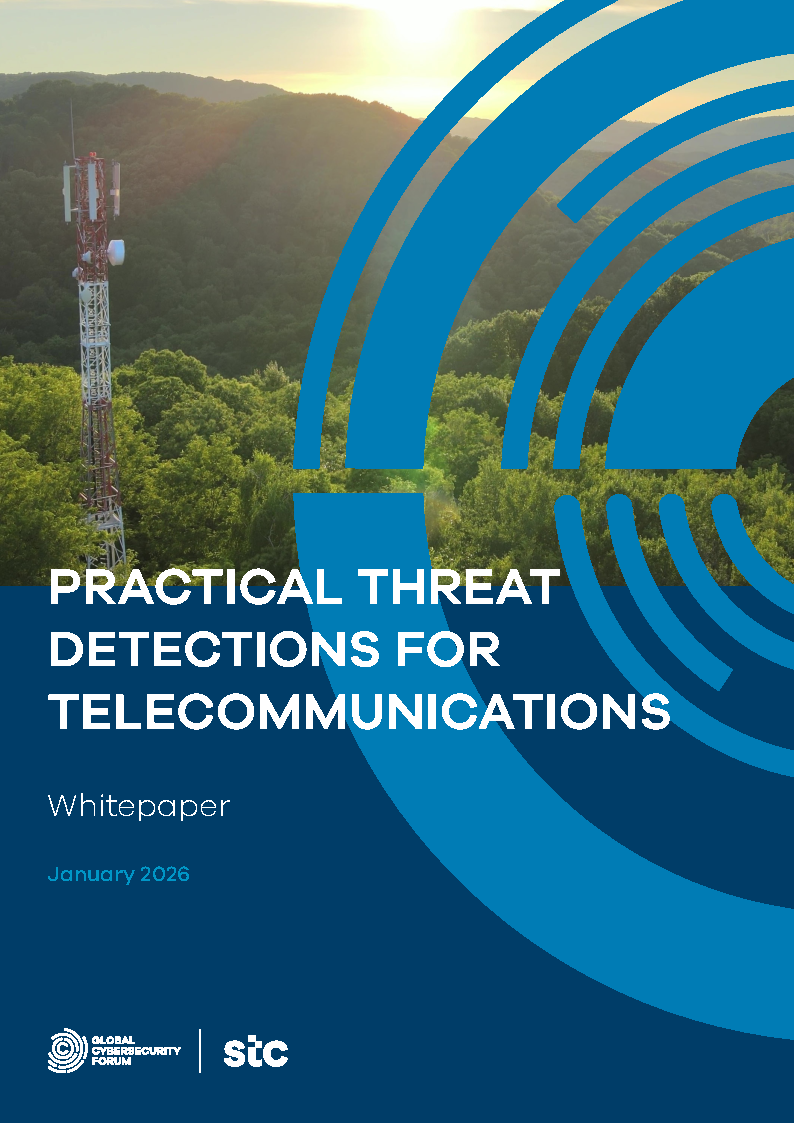
.png&w=3840&q=75)
